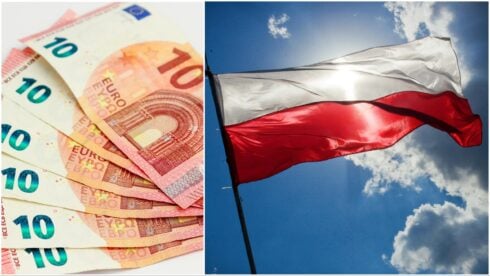WHAT was said in Wyoming last month matters on the streets of Spain today. The Jackson Hole symposium, an annual gathering of the world’s most powerful central bankers, has once again set the tone for markets everywhere.
Jerome Powell, chair of the US central bank The Federal Reserve, avoided a formal commitment, but made it clear that a rate cut in September is firmly in play.
Global markets reacted instantly – and for expats in Spain, those ripples are impossible to ignore.
Josh Dixon, Director of deVere Spain, part of one of the world’s largest independent financial advisory organisations with more than 100,000 expatriate clients worldwide, stresses that the consequences reach directly into the lives of international residents.
“Many expats have portfolios, savings, and income structures tied to global markets — often with heavy US exposure. When the Fed shifts, it isn’t abstract. It moves currencies, it alters the value of funds, it affects borrowing costs, and it changes how far income stretches each month in Spain.”
Jackson Hole is not a dry academic conference. For decades it has been the Fed’s stage for signalling future policy.
In 2010, Ben Bernanke hinted at fresh quantitative easing, setting off years of ultra-loose money. In 2022, Powell used it to entrench the “higher for longer” mantra that guided two bruising years of elevated rates. Markets know to take every phrase seriously.
This year, Powell’s guarded but open-ended comments were enough to send US bond yields lower, the dollar swinging, and risk-sensitive currencies lurching. The message was heard in New York, London and Frankfurt, and in Madrid and Málaga too.
The backdrop could not be more fraught. The US economy is showing strain: growth has slowed, the labour market is losing steam, and tariffs imposed by President Donald Trump are filtering through global supply chains, raising costs instead of reducing them. Inflationary pressure from trade barriers is colliding with signs of weakening demand.
The irony is striking: measures designed to show economic strength are now one of the forces creating fragility.
Markets are already trading ahead of the Fed, betting that easier policy is near. Tech stocks, reliant on cheap capital, have surged on the assumption that borrowing costs will fall. Real estate and utilities, which thrive when bond yields drop, are attracting new demand.
For investors anywhere in the world, that creates a paradox. Prices are rising because conditions are weak enough to require cuts. If the slowdown intensifies, today’s optimism could quickly give way to a deeper correction.
International portfolios are rarely as diversified as their labels suggest.
Many “global” funds still carry a majority weighting to US equities. Exchange-traded funds and index trackers, popular with expats, lean heavily on Wall Street.
A Fed shift therefore doesn’t just matter in theory. It can change the value of savings, the income drawn from investments, and the strength of the currencies used to support life abroad.
Dixon is direct. “Living in Spain doesn’t shield anyone from the Fed. If you’re relying on income from investments or drawing down capital, you are exposed to the same forces that drive Wall Street.
“The move Powell makes next month will show up in your balance, in your spending power, and even in how your mortgage feels if you’re financing property here with an international loan.”
Spain’s national exposure to the United States is modest. American imports account for barely over one percent of GDP. But that statistic is cold comfort to international residents whose personal finances are tied to global benchmarks.
The real story is not about trade flows but about capital flows. A sudden weakening of the dollar can squeeze those drawing income in US currency. A surge into or out of European equities can reprice portfolios overnight.
For expats in Spain, the vulnerabilities are personal, not macroeconomic.
The next few weeks will set the course. On the first Friday of September the US jobs report will reveal whether hiring momentum is holding up.
Days later, fresh inflation data will show if July’s spike in producer prices was an anomaly or the start of something more entrenched. These numbers will guide Powell, but they will not delay markets.
Investors move on expectation, not confirmation. “By the time a cut is formally announced, the real moves are already underway,” Dixon says.
“This is why you need to be looking at your holdings now, not after the fact. Waiting for clarity from the Fed means reacting too late.”
The lesson is straightforward. For expats in Spain, reviewing portfolios is no longer optional. It means looking past the marketing labels of ‘global’ funds to see what lies beneath, weighing exposure across regions, and asking how dollar volatility could affect monthly living costs.
It means stress-testing whether income streams are resilient if US markets wobble, and whether assets held for the long term are balanced enough to weather turbulence.
Powell’s speech at Jackson Hole may have been cautious, but it has already set markets in motion. The Fed’s decision in September, whenever it comes, will echo through currencies, stocks, bonds and funds.
As Dixon concludes: “This is a critical moment. You should be reviewing, adjusting and seeking advice now. Waiting for perfect clarity means waiting too long.”
READ MORE: Global investment diversification matters more than ever
Click here to read more Business & Finance News from The Olive Press.









